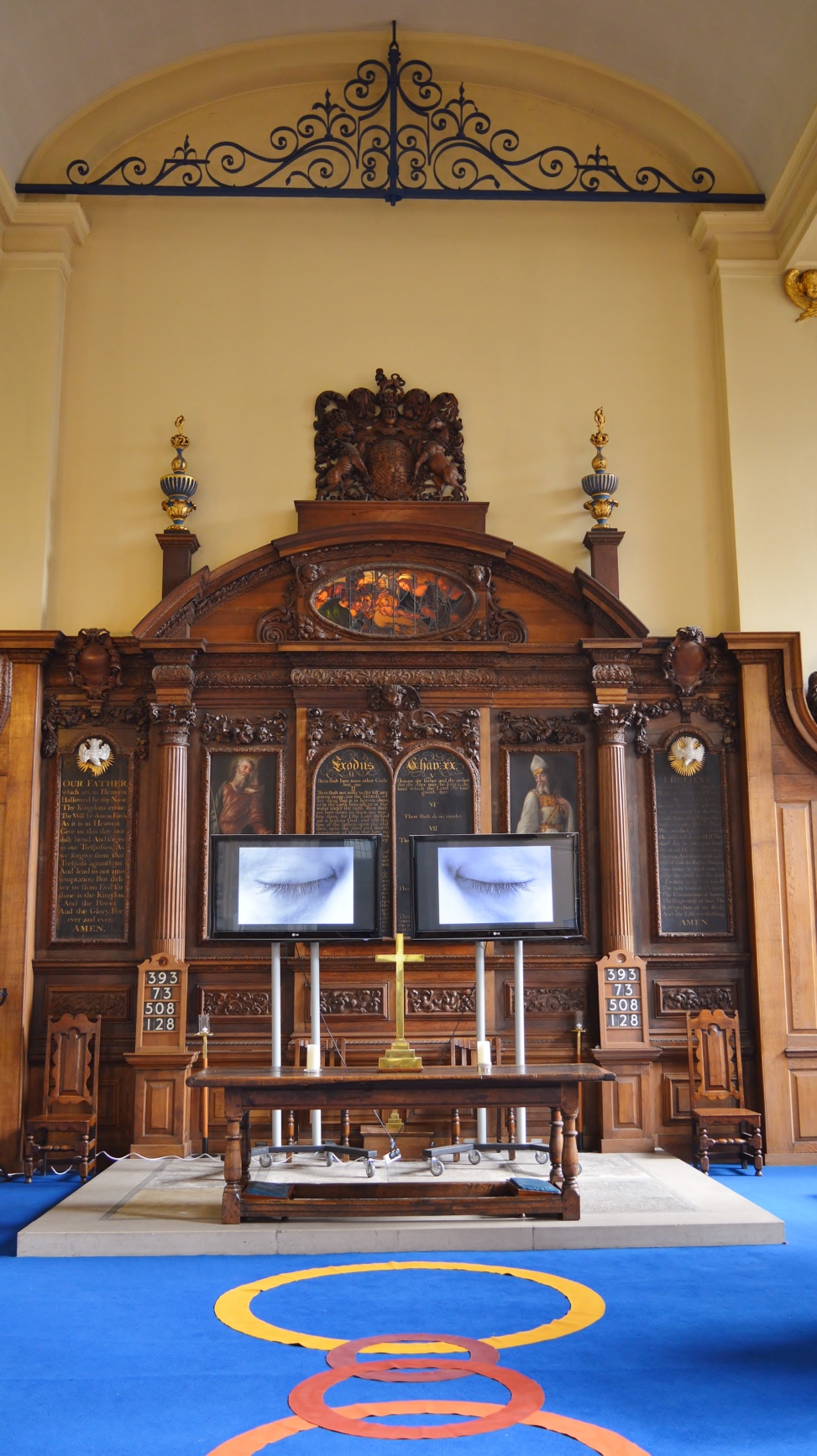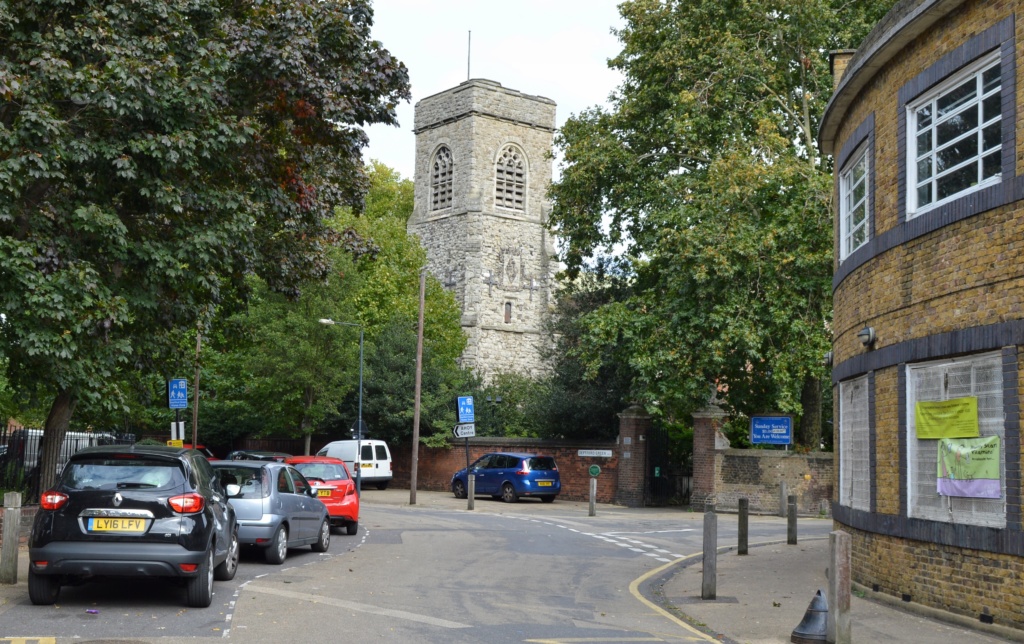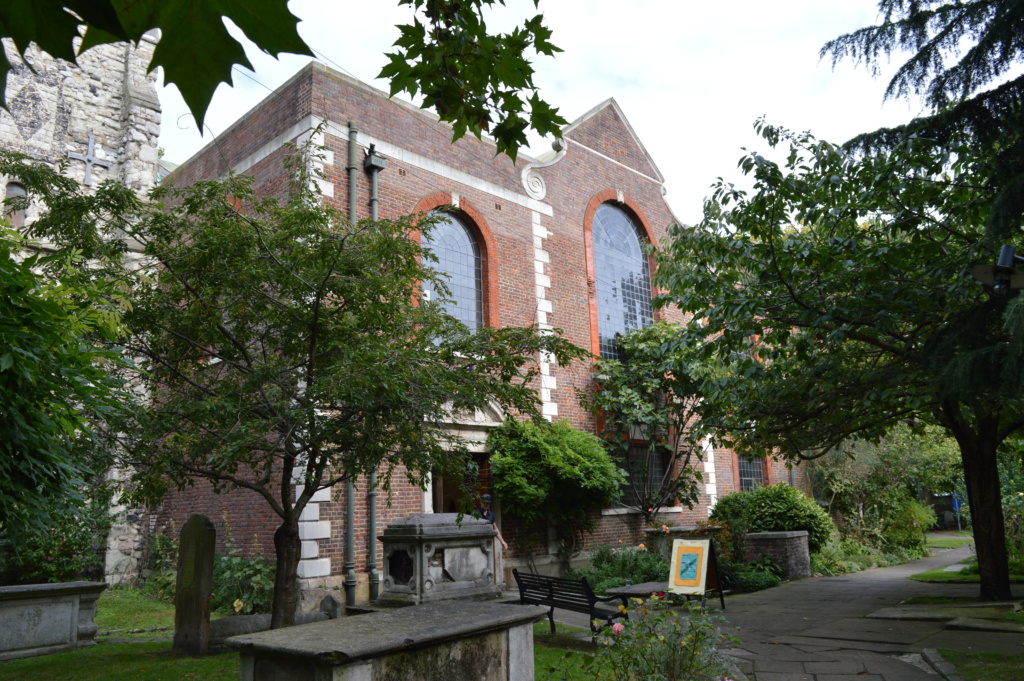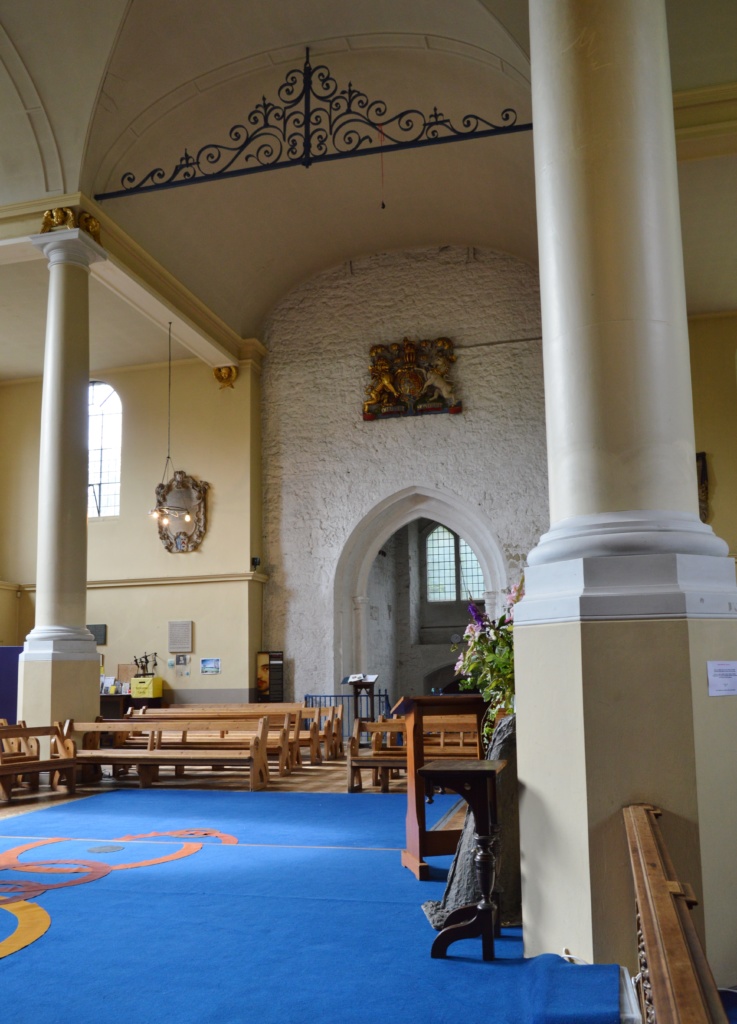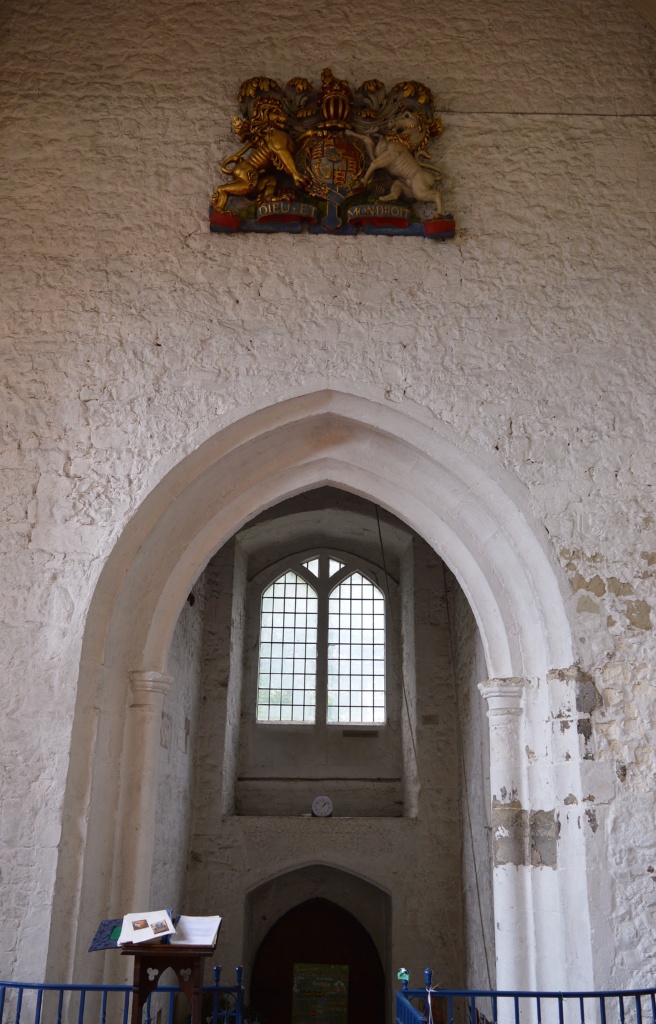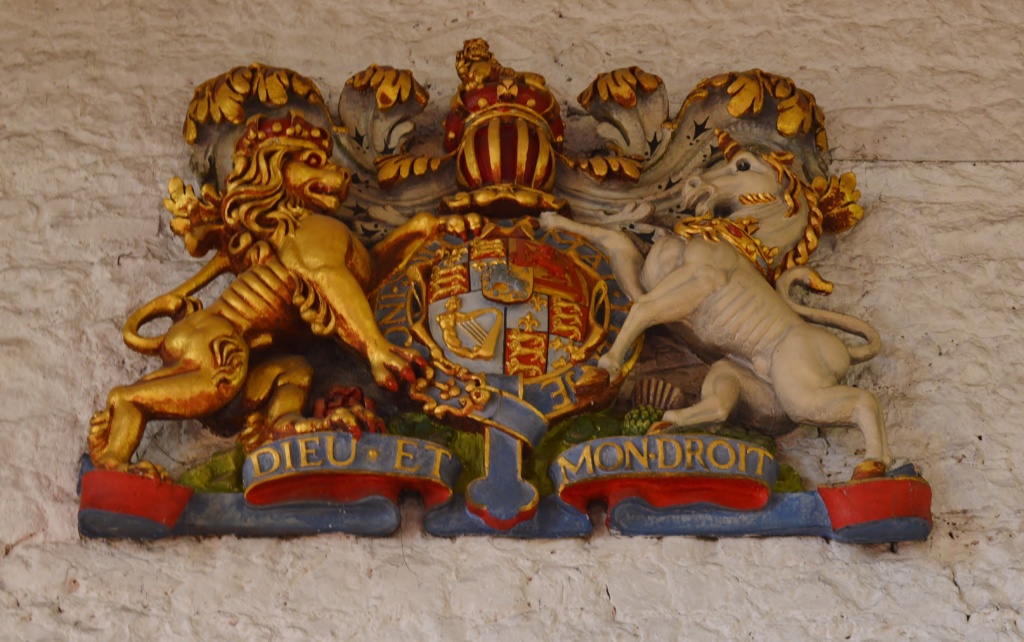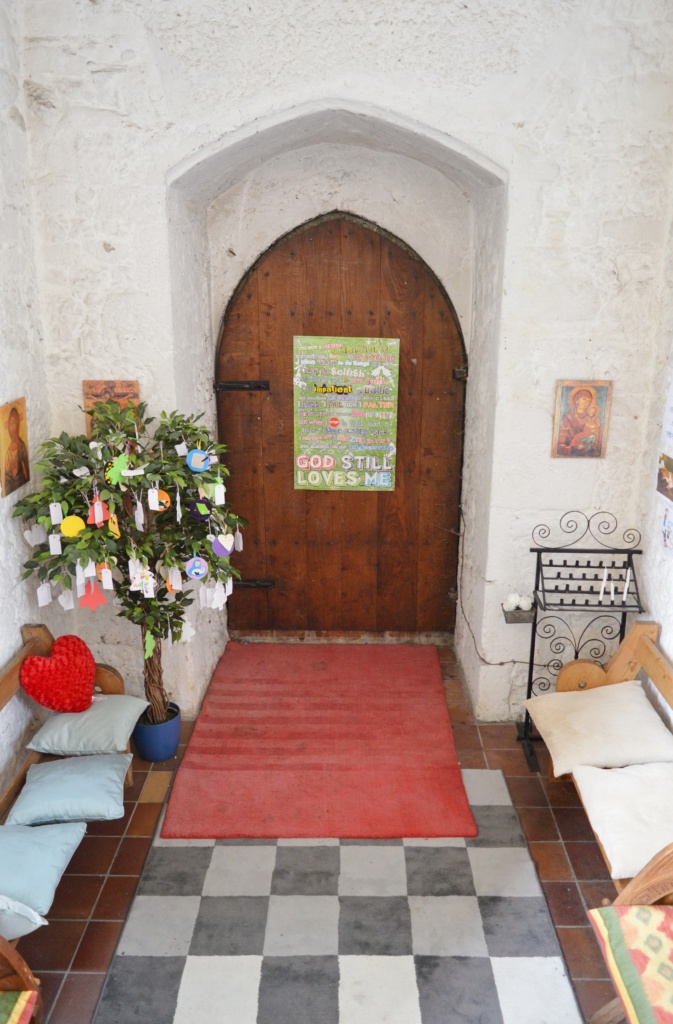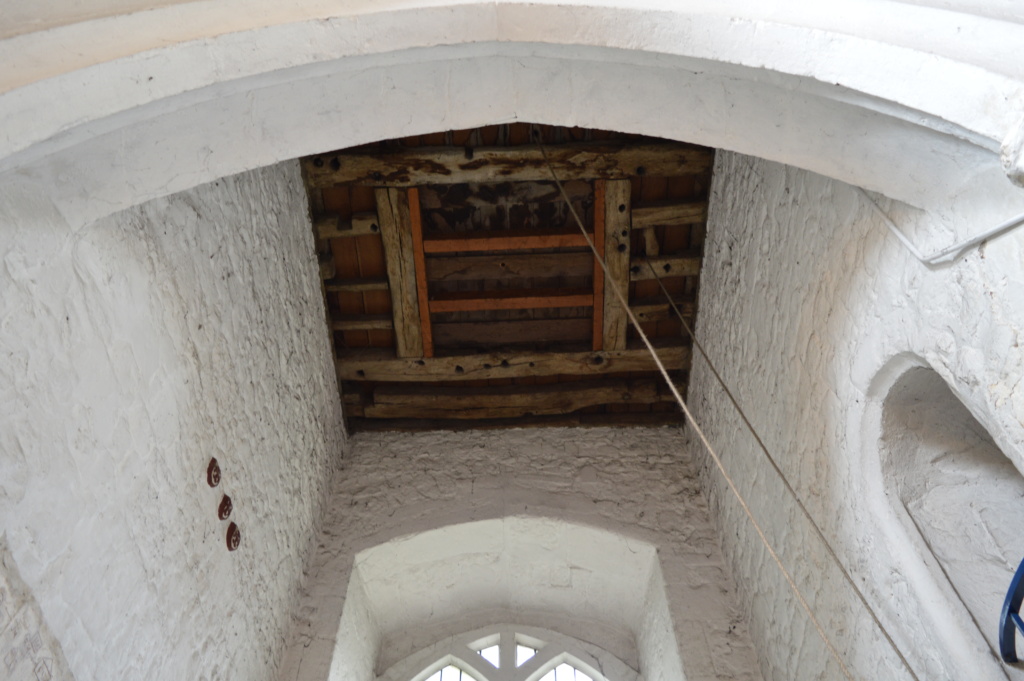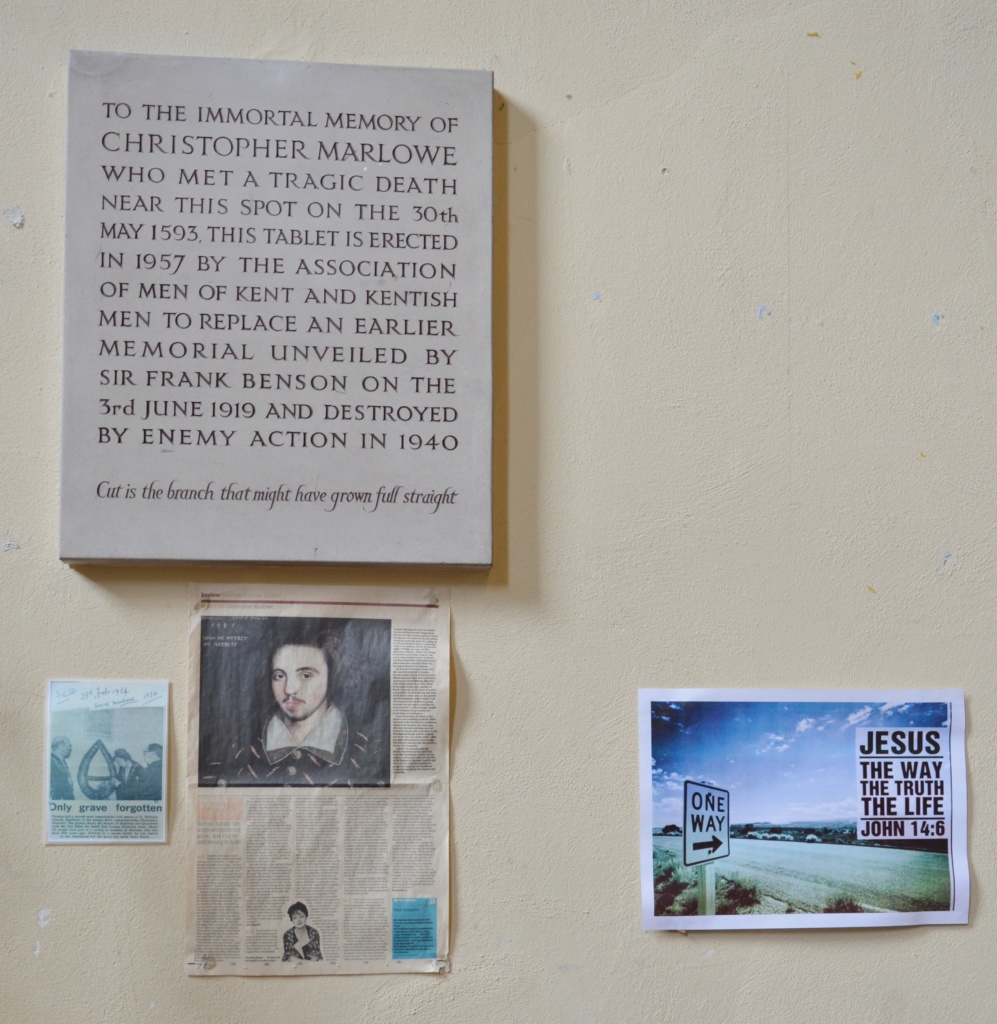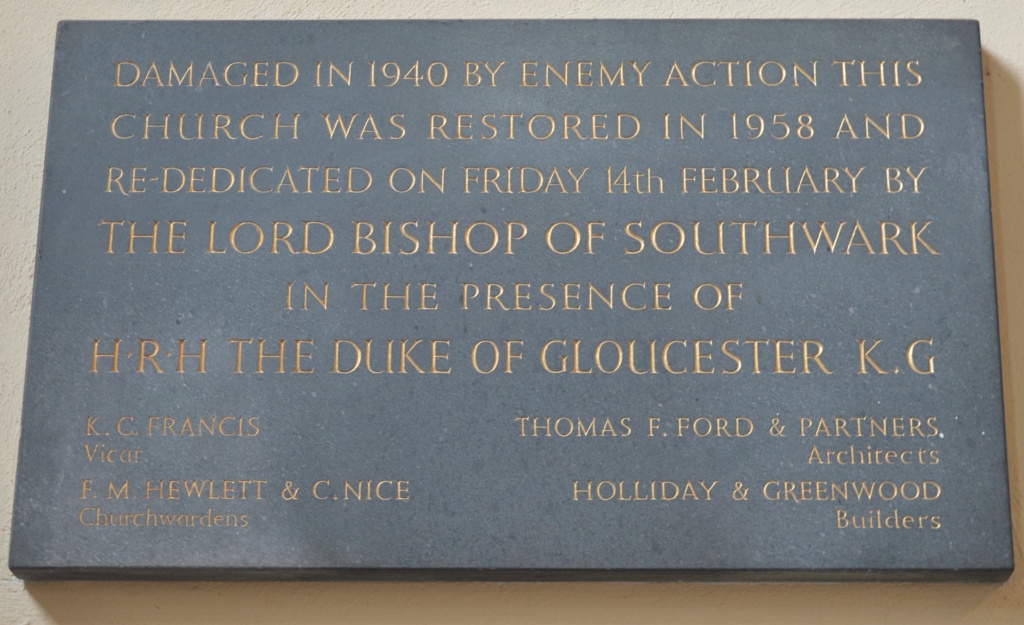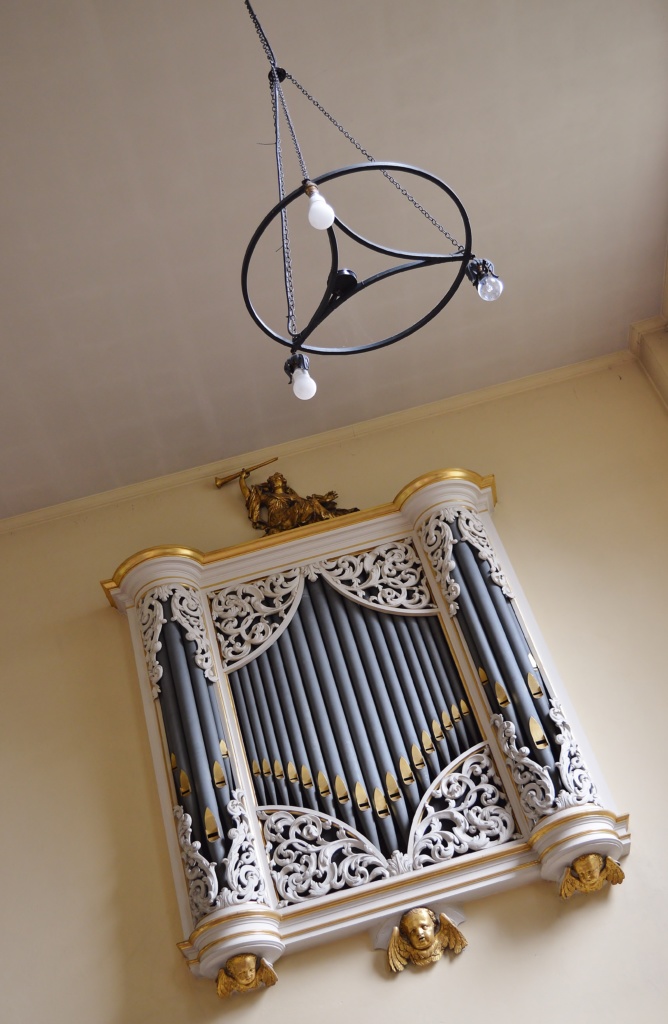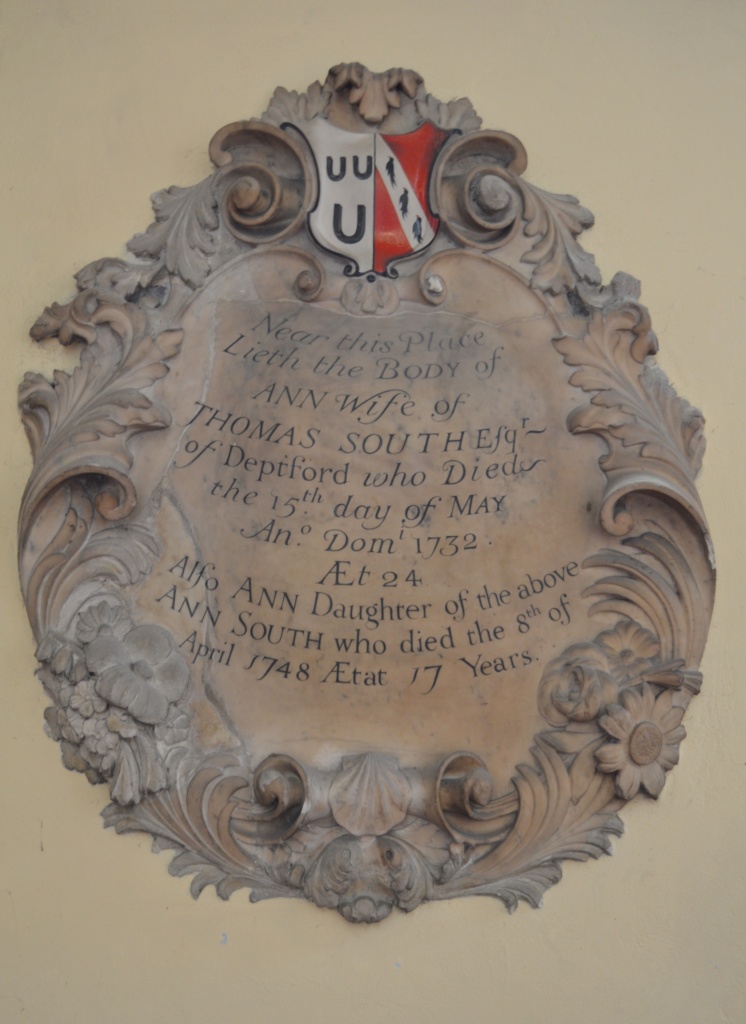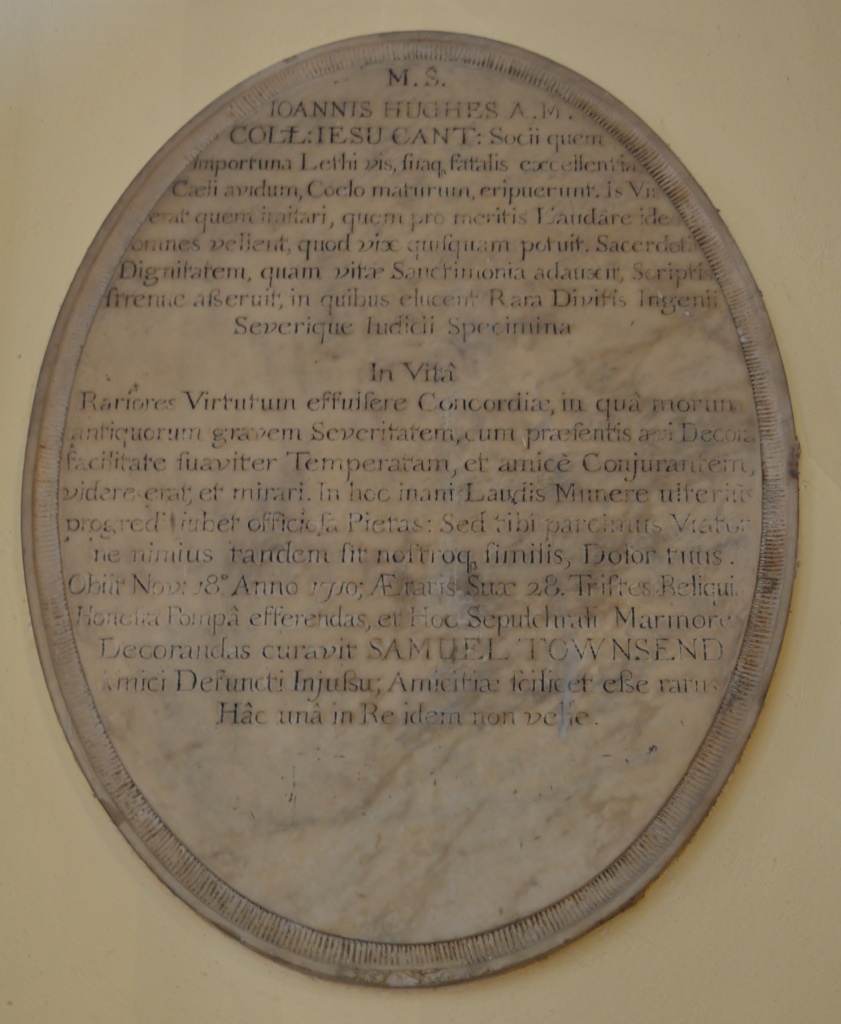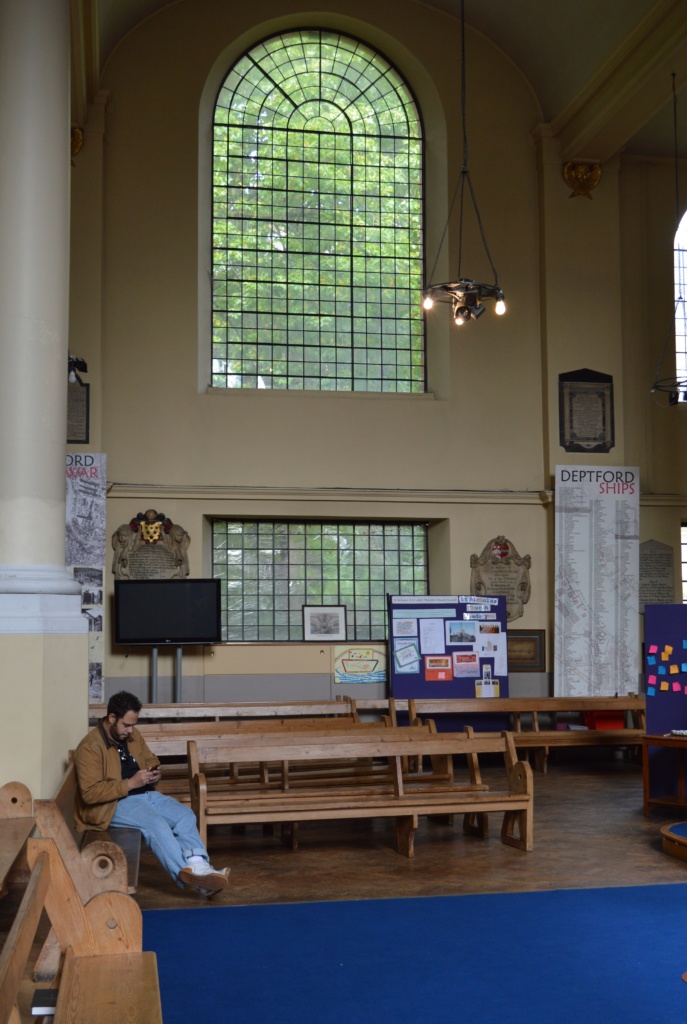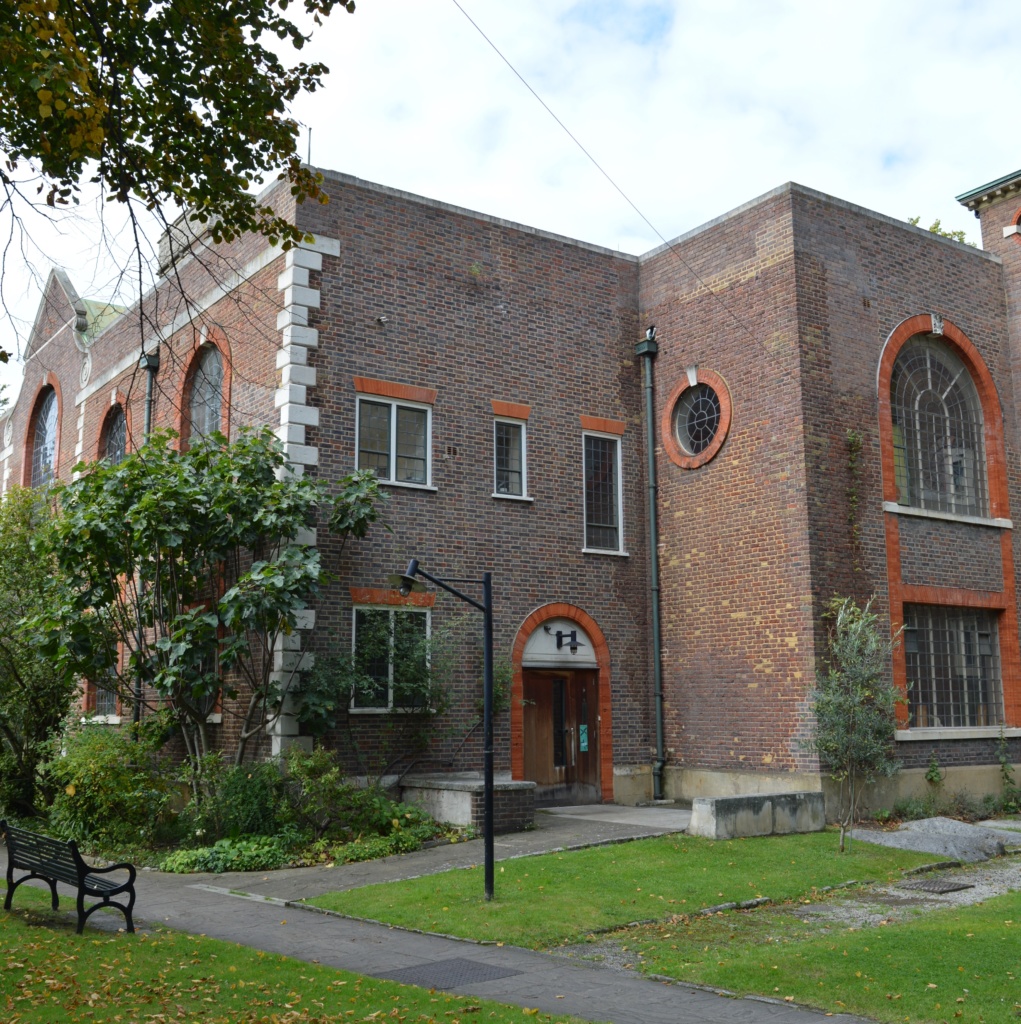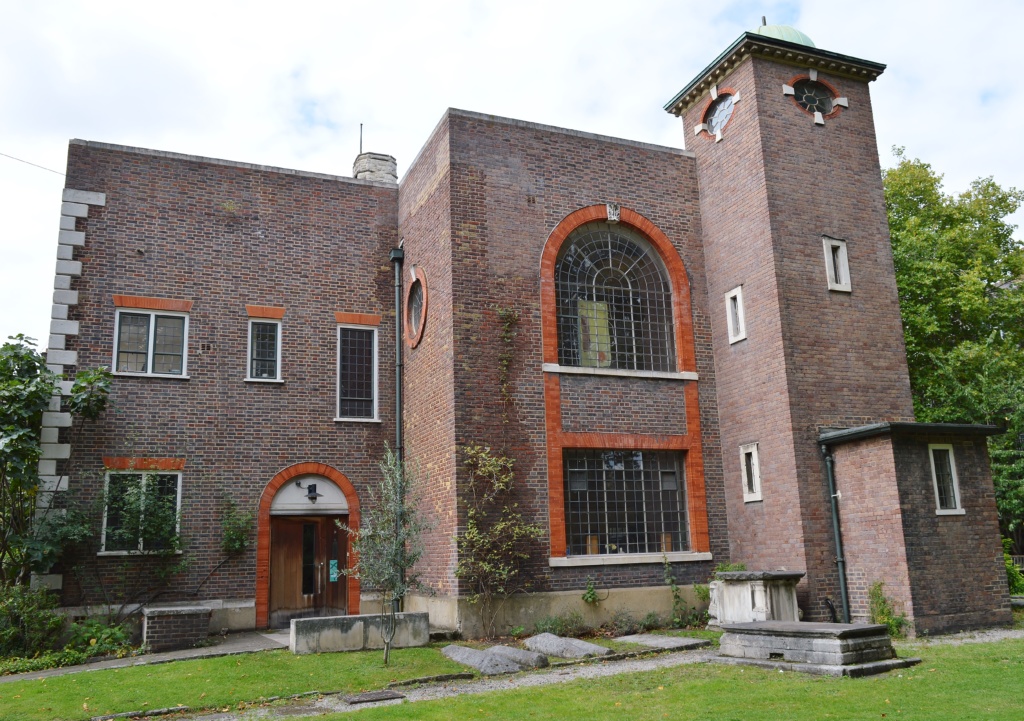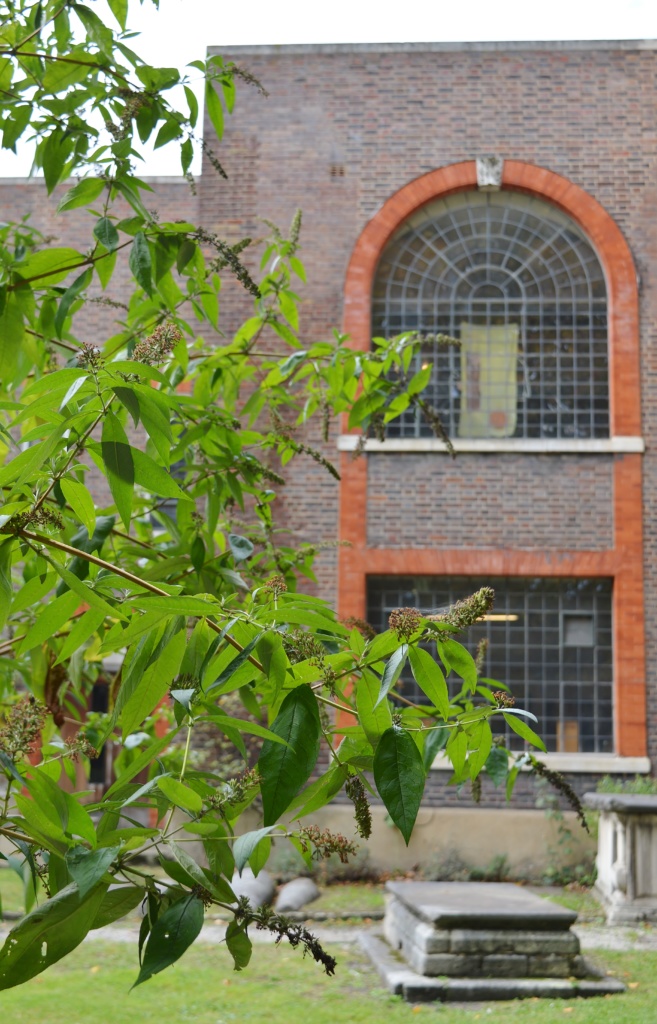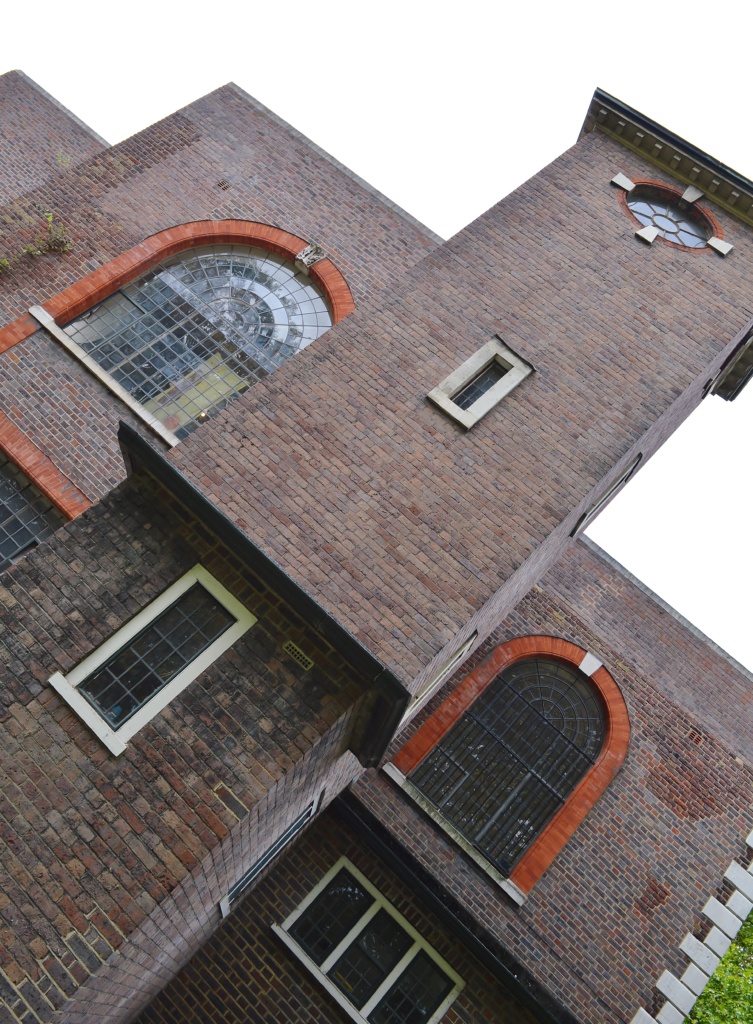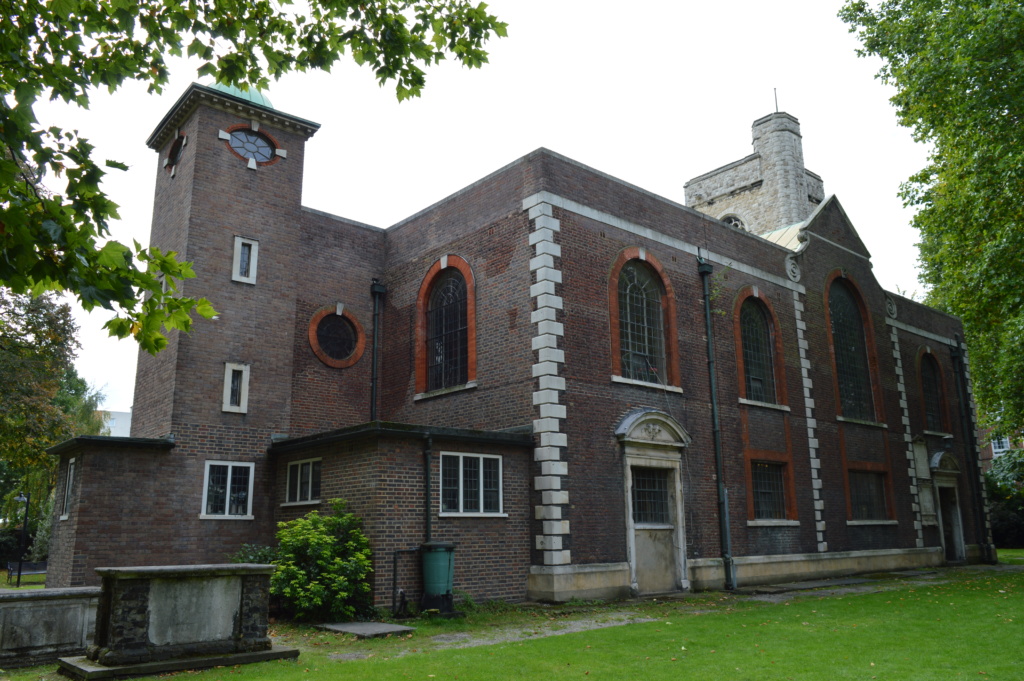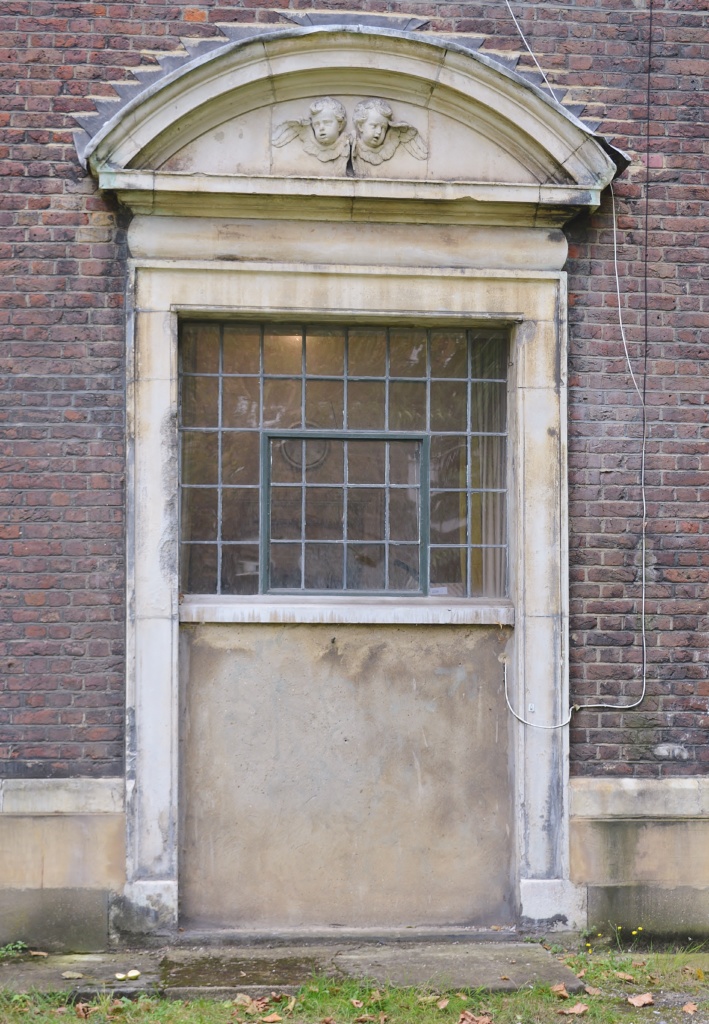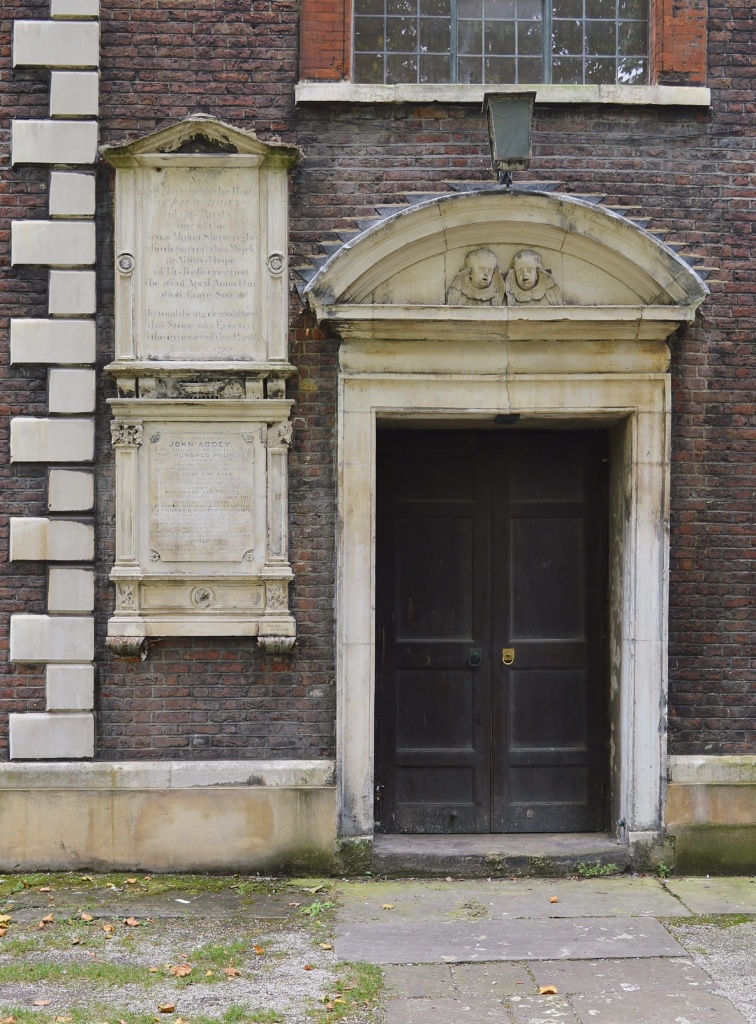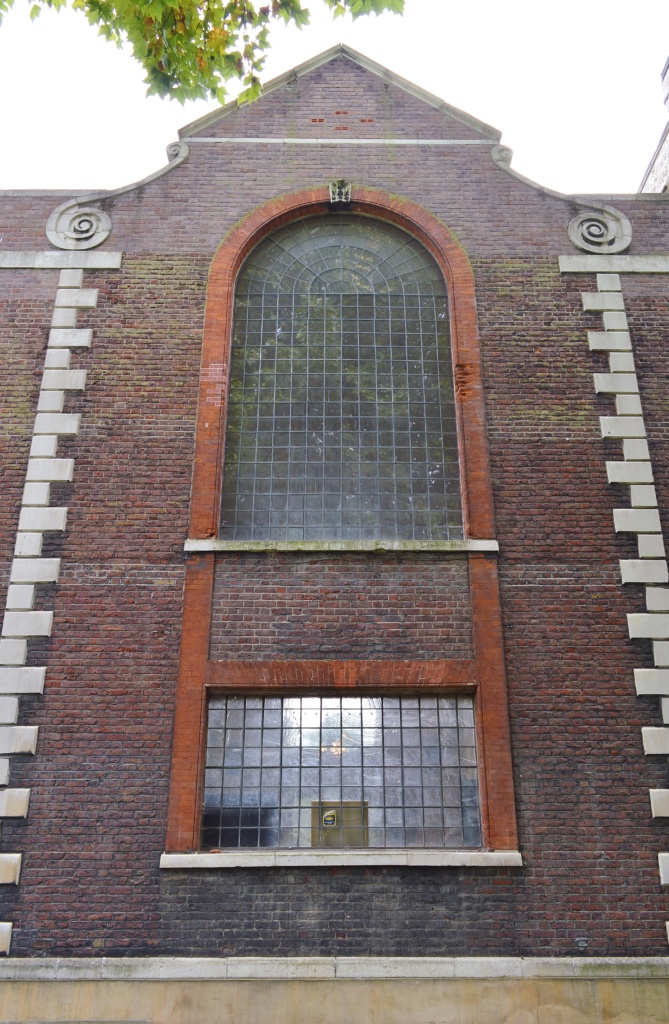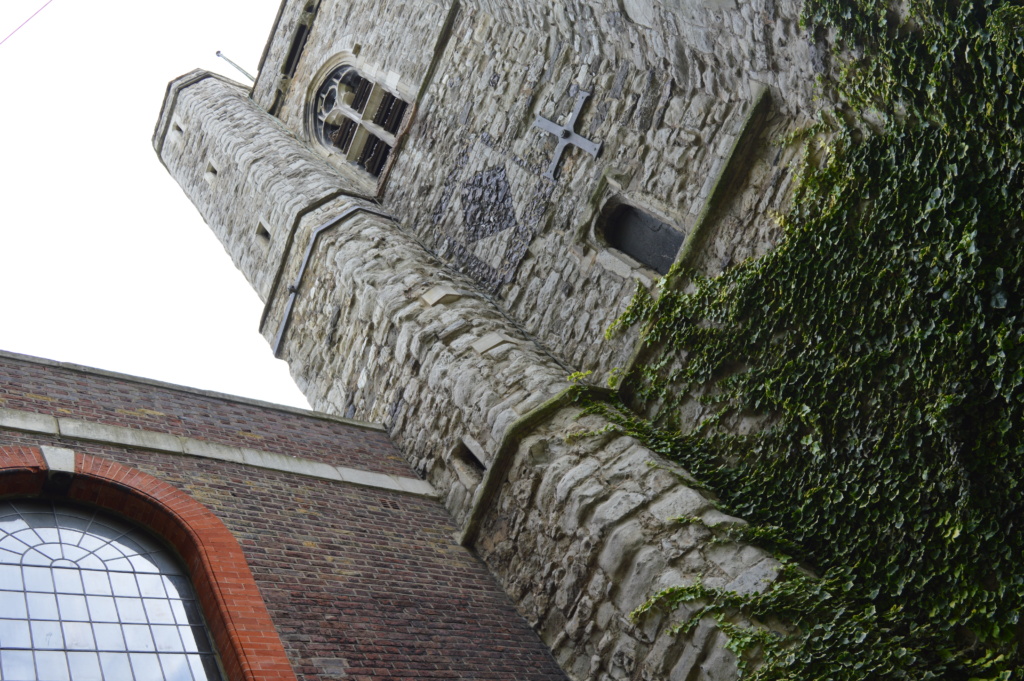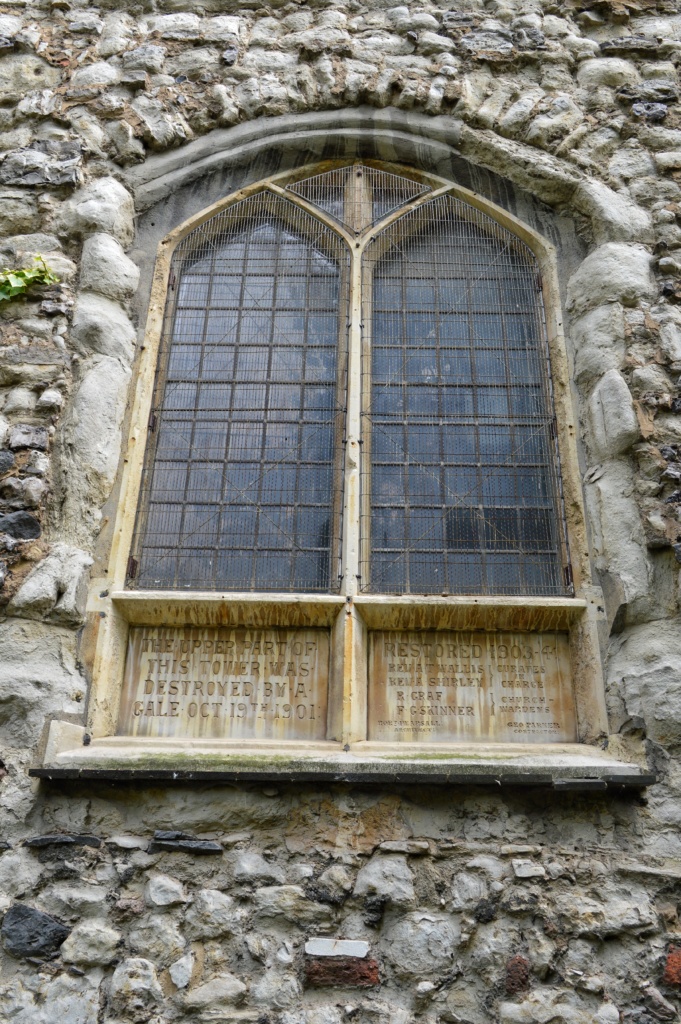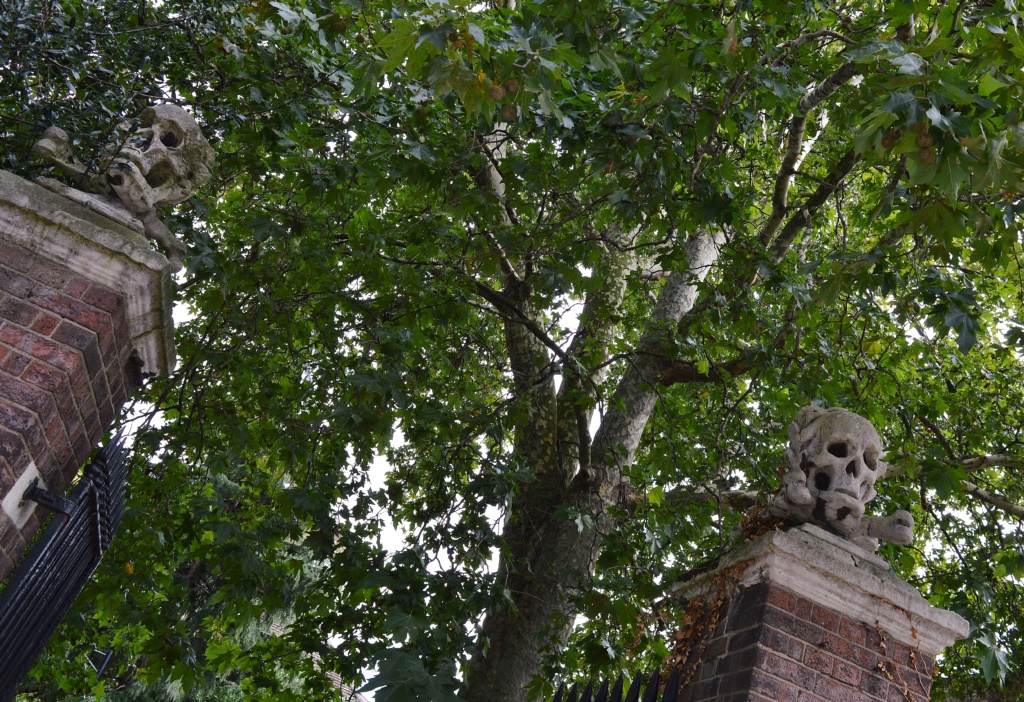Ian Nairn called this “a chubby brick church of 1697, blitzed in the war” in his classic book Nairn’s London.
He was referring to the main bulk of the church, now nicely restored and featuring an ornate carved backdrop to the altar, which I have discovered is called a reredos. You can see it in the picture above. The white stone tower though less interesting is earlier, dating back to the 14th century (its top was actually blown off in a storm and replaced in 1901).
The main gates to the yard have a set of skull-and-bones on top of each post. There is a local myth that these were the model for the pirate flag but sadly that’s not the case. They post-date the classic black and white flag design.
The church’s main claim to fame is that the playwright Christopher Marlowe is buried in an unmarked grave in the churchyard. Known as a carouser, he was murdered in 1593 after a drunken brawl in a nearby tavern. There are many theories about his death including the idea that he was assassinated after getting mixed up with a spying group. Another theory is that he was murdered by a jealous male ex-lover. However he went, there is a plaque in his memory on the inside north wall of the church.
Many of his companions in the graveyard are Naval types. It is full of sea faring men and their families; the Royal Naval Yard at Deptford and shipyards that built some of the most famous of all British ships, including the original Ark Royal, were nearby. The church contains a list of the ships that were built in the area.
On the day I visited to take these photos the church was hosting an arts festival. This explains the two screens (each with a video of an eye on them) which sat in front of the altar. A man was outside the church smoking a cigarette as I arrived. He turned out to be a sound sculptor . We got chatting about his work and about the church. He gave me a little of its history. As I walked round the inside of the church he played his moody electronic music for me which added to the experience.
